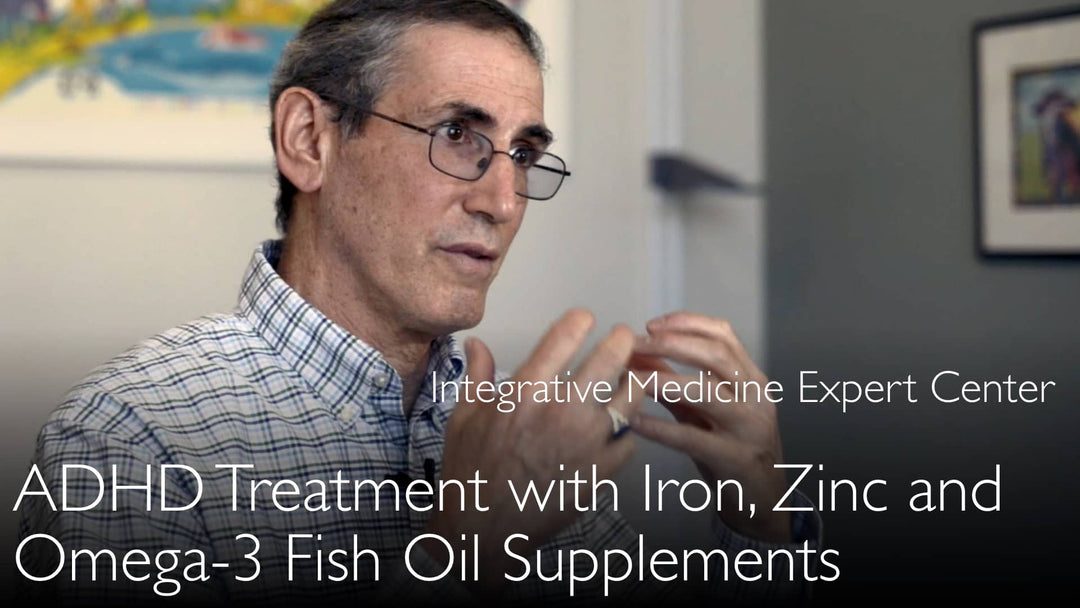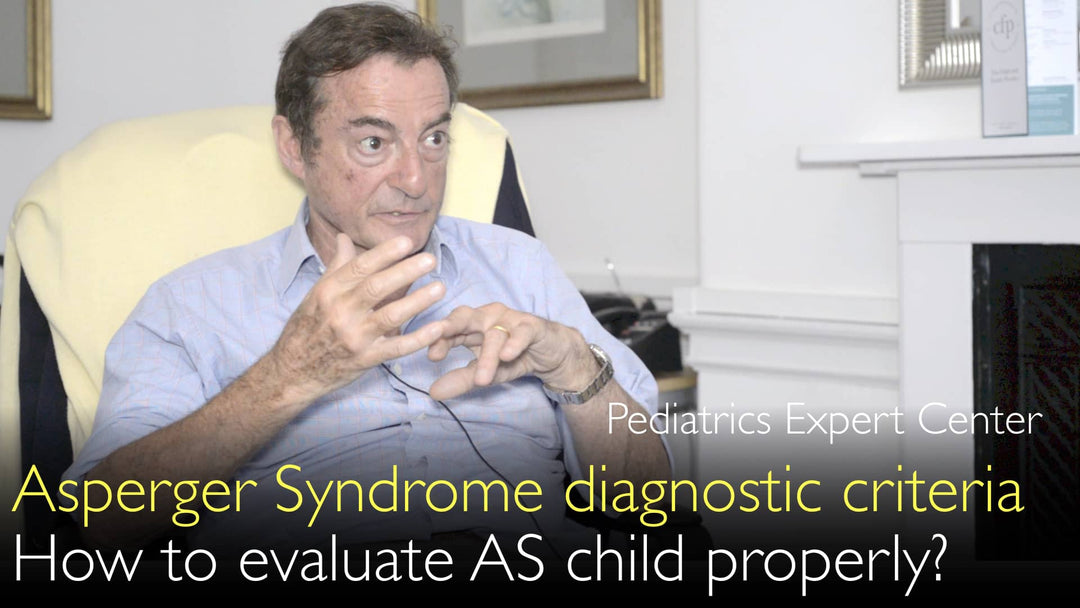Leading expert in holistic ADHD treatment, Dr. Sanford Newmark, MD, explains how nutritional supplements can effectively manage attention deficit hyperactivity disorder. Clinical research shows omega-3 fish oil is 40% as effective as pharmaceutical stimulants with minimal side effects. Iron and zinc deficiencies are strongly linked to ADHD. Supplementing these nutrients can significantly improve symptoms. A medical second opinion confirms an accurate ADHD diagnosis and optimal treatment plan.
Nutritional Supplements for ADHD: Iron, Zinc, and Omega-3 Fish Oil
Jump To Section
- ADHD Nutritional Supplements Overview
- Omega-3 Fish Oil ADHD Efficacy
- Iron Supplements ADHD Treatment
- Zinc Deficiency ADHD Link
- Integrative ADHD Treatment Approach
- Full Transcript
ADHD Nutritional Supplements Overview
Nutritional deficiencies play a significant role in attention deficit hyperactivity disorder. Dr. Sanford Newmark, MD, a leading pediatric neurologist, emphasizes the importance of specific supplements. Research supports the use of omega-3 fatty acids, iron, and zinc for managing ADHD symptoms. These natural interventions offer a complementary approach to traditional pharmaceutical treatments.
Dr. Anton Titov, MD, discusses the holistic management of ADHD with Dr. Newmark. Their conversation highlights the scientific evidence behind nutritional support. This integrative method can be part of a comprehensive treatment plan for many patients.
Omega-3 Fish Oil ADHD Efficacy
Omega-3 fish oil supplements demonstrate remarkable efficacy for ADHD treatment. Dr. Sanford Newmark, MD, cites a major meta-analysis of clinical trials. The analysis concluded that fish oil was approximately 40% as effective as prescription stimulant medications.
This finding is significant for patients seeking alternatives with fewer side effects. Dr. Sanford Newmark, MD, notes that omega-3 fatty acids, primarily from fish oil, have a very favorable safety profile. The interview with Dr. Anton Titov, MD, underscores that this is a well-researched, evidence-based option for many individuals with ADHD.
Iron Supplements ADHD Treatment
Low iron levels are a recognized biomarker associated with ADHD. Dr. Sanford Newmark, MD, explains that clinical research has established this clear link. A pivotal study used functional MRI to examine brain iron metabolism. It revealed that iron processing in the brain is fundamentally different in children with ADHD.
Treating this deficiency with iron supplements can lead to tangible improvements in symptoms. Dr. Anton Titov, MD, and Dr. Newmark discuss the importance of testing for iron levels. Correcting a deficiency is a targeted strategy that addresses a root cause of symptoms for some patients.
Zinc Deficiency ADHD Link
Zinc is another crucial mineral implicated in attention deficit hyperactivity disorder. Dr. Sanford Newmark, MD, points to clinical trials that have investigated this relationship. These studies consistently found that zinc deficiency is more common in patients with ADHD.
Supplementing with zinc has been shown to provide benefit and help manage the condition. This adds another tool to the integrative treatment toolkit discussed by Dr. Newmark and Dr. Anton Titov, MD. Addressing zinc levels is a simple yet potentially powerful intervention.
Integrative ADHD Treatment Approach
An integrative approach combines conventional and complementary strategies for optimal ADHD care. Dr. Sanford Newmark, MD, advocates for this holistic model. It begins with ensuring an accurate diagnosis, for which a medical second opinion can be invaluable.
Treatment then incorporates evidence-based supplements like fish oil, iron, and zinc alongside other therapies. Dr. Anton Titov, MD, highlights the goal of this approach: to create the most effective, personalized plan with the fewest side effects. This method empowers patients and families by addressing the biological underpinnings of ADHD.
Full Transcript
Iron, zinc, and omega-3 fish oil supplements help to treat ADHD. Fish oil can be 40% as effective as medications to treat attention deficit hyperactivity disorder.
A leading expert on holistic treatment of ADHD discusses the use of zinc, iron, and fish oil in the treatment of ADHD.
Abnormal brain iron levels may be a biomarker of ADHD. A medical second opinion helps to make sure an ADHD diagnosis is correct and complete.
Kids with ADHD benefit from iron, zinc, and omega-3 fish oil supplements. A medical second opinion also helps to choose the best treatment for ADHD.
Iron supplements in ADHD can help. Brain iron metabolism was different in kids with ADHD. One clinical trial linked low iron to ADHD.
Omega-3 fish oil supplements are 40% effective compared with ADHD medications. Fish oil has basically no side effects.
Zinc can also be used in the treatment of attention deficit hyperactivity disorder. Zinc deficiency was found in patients with ADHD.
A medical second opinion confirms that an ADHD diagnosis is correct and complete. It also confirms that ADD treatment is required.
A medical second opinion helps to choose the best treatment for autism and ADHD. ADHD diagnosis requires testing for levels of iron and zinc.
Omega-3 fish oil supplements should be used in many situations of ADHD treatment. Get a medical second opinion on ADHD and autism spectrum disorder, and be confident that your treatment is the best.
Dr. Anton Titov, MD: Is there a role for nutritional supplements in the treatment of ADHD? For example, fish oil, fatty acids, iron supplements.
Dr. Sanford Newmark, MD: Absolutely! The use of food supplements in ADHD has been proven by research.
For example, there have been a number of clinical trials showing that omega-3 fatty acids are helpful for ADHD. They are usually given as fish oil.
One meta-analysis showed that fish oil was about 40% as effective as the pharmaceutical stimulants. This was an analysis of combined clinical trials.
Fish oils had very few side effects. We also noticed that low iron levels are associated with ADHD.
Treating low iron levels with iron supplements can help ADHD. A recent clinical trial looked at iron use in the brain by functional MRI.
The study showed that iron metabolism in the brain was different in kids with ADHD. Zinc is another thing that has been studied in ADHD.
Some clinical trials show that zinc levels are important. Supplementing with zinc can help kids with ADHD.







